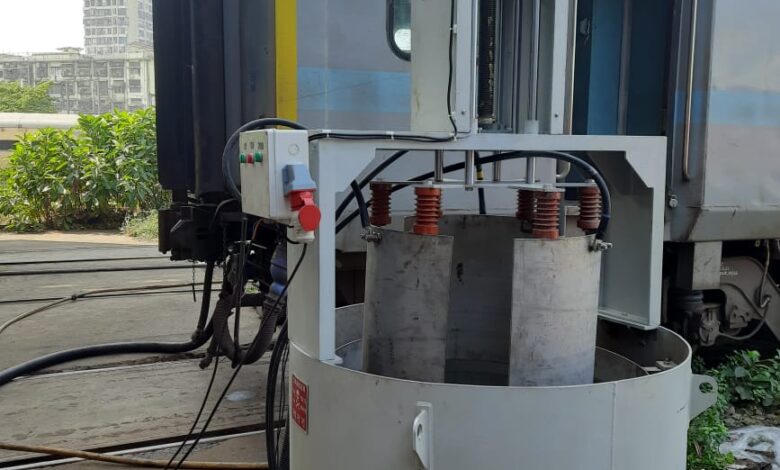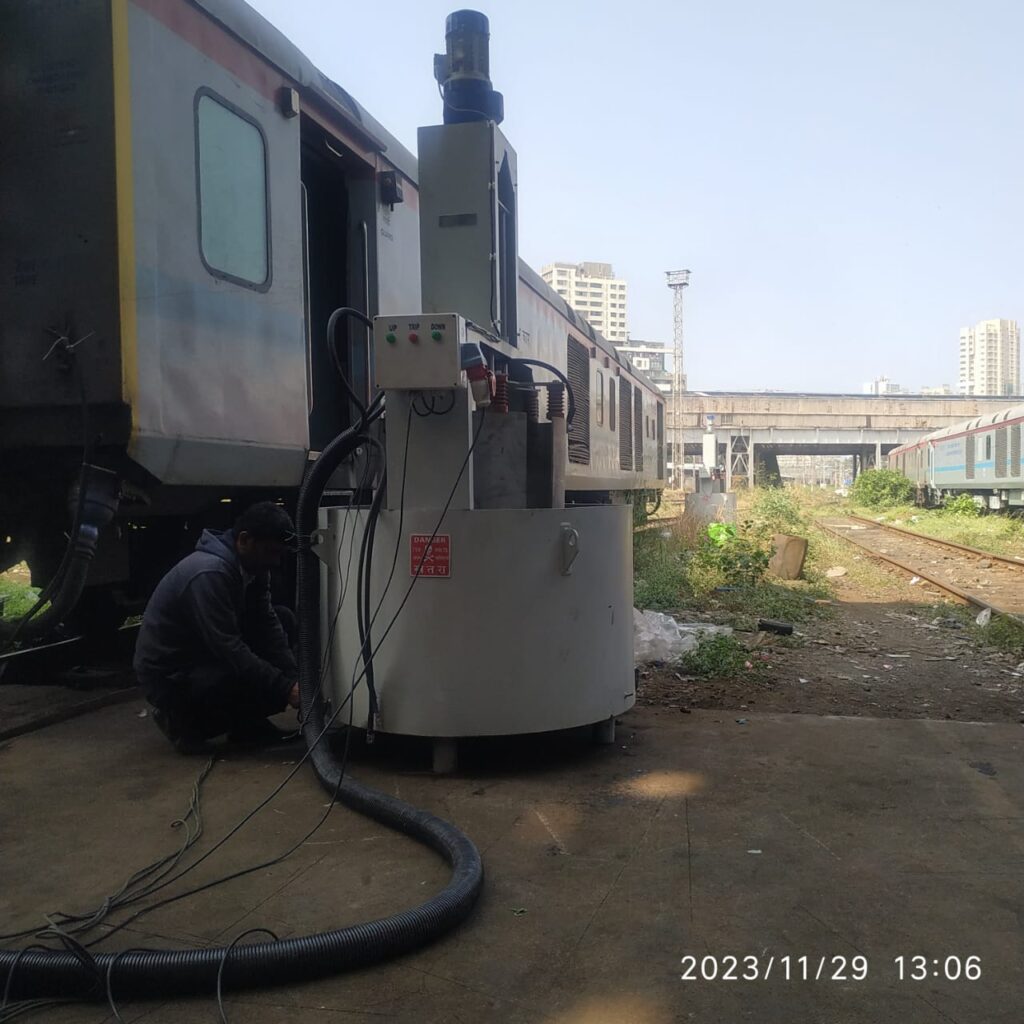Railway Breakthrough: CR Introduces Groundbreaking Static Water Load Testing Units for LHB Power Car Evaluation

In a groundbreaking move, Central Railway (CR) has revolutionized the testing procedures for LHB Power Cars through the introduction of Static Water Load Testing Units, marking a pioneering initiative in the railway sector.
The power car, a crucial component providing electricity to various elements within a train rake, such as lights, fans, air conditioning, and mobile charging points, undergoes a pivotal capacity or voltage check, commonly known as load testing, post-maintenance repairs.
Traditionally, this testing process involved the shunting of entire train rakes, often causing operational delays at the LTT (Lokmanya Tilak Terminus) and Wadi Bunder coaching depots due to limited space availability.
The newly implemented Static Water Load Testing Units now enable the direct attachment of power cars to the rake for immediate service after load testing, eliminating the need for entire rake shunting. This development comes with a range of advantages, including increased readiness and reliability of power cars, a reduction in manpower dedicated to shunting activities, and the elimination of unnecessary movement/shunting of rakes.
Other benefits include substantial savings in Diesel Loco utilization for load testing, mitigation of yard congestion, and optimization of line capacity. The innovation also leads to a significant reduction in operational time for the Chief Yard Master (CYM) by eliminating the need for shunting during load testing.
Key features of the Static Water Load Testing Units include the ability to conduct full load testing of 750KV, 500 KVA DG sets, remote operational capabilities, and mobility facilitated by forklifts, allowing easy movement to any location. The units have minimal water requirements for top-ups and rely on a 415V 3 Phase supply for the operation of the induction motor during electrode movement.
CR has installed two units each at the Wadi Bunder and LTT coaching depot sick lines, with a cost-effective price tag of ₹9.5 lakh per unit. This implementation underscores the Railways’ commitment to innovation and efficiency in railway operations, setting a new standard for testing procedures in the industry.





